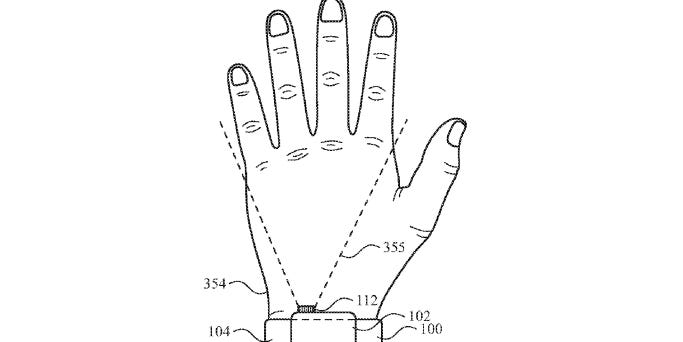- Apple is reportedly working on home robots that could follow users and be used for FaceTime sessions.
- The company also has a patent lineup that peeks into what could be its “next big thing.”
- Analysts predict which Apple patents are likely to become products. Here’s what they said.
Apple is exploring the creation of home robots in an effort to make its “next big thing” after the company ended its self-driving car project earlier this year, sources familiar with the matter told Bloomberg.
The tech giant is looking into developing a mobile robot that follows users around their houses, Bloomberg reported. It’s also working on a tabletop device that can rotate a screen independently. The rotating smart device could follow a user’s head movements during a FaceTime session and zoom into a particular person in a crowd that’s on the call, per Bloomberg. It’s not clear if these robots will ever hit the market.
But Apple may not just be betting on domestic machines. The company’s famously hefty patent lineup offers a glimpse into what else the iPhone maker could make as part of its quest to create the next big product.
For example, some of the tech giant’s recent patents point to a 20.3-inch MacBook with a foldable screen that top analyst Ming-Chi Kuo predicts could enter mass production in 2027.
Others may also be on the horizon, said Anmol Saini, a technical architect at Insights by GreyB, the innovation consulting firm’s patent research division.
Saini is part of a team that analyzes the latest trends in Apple’s patents. He identified three Apple patents he believes the company will likely make.
The patents Saini identified as “highly probable” include:
1) An Apple Watch with a camera
2) A hand-wearable accessory for the Apple Vision Pro
3) Siri that works offline on the iPhone
Notably, most of Apple’s patents — the company filed 95,500 of them globally, per recent Insights by GreyB data — don’t make it to production.
“Typically, about 30% of them ultimately find their way to some feature,” Gene Munster, an analyst at Deepwater Asset Management, told BI regarding the tech giant’s patents.
Saini says he made these predictions based on the trends he identified when reviewing the patents.
He noted that the Apple Watch camera could be a feasible product because “a lot” of Apple’s patents were around gesture and hands-free control, which he claims depend on a camera feed. The same goes for the Vision Pro’s hand-wearable accessory. Many patents related to the gaming and VR space, he said, explicitly mention a “hand wearable device.”
“This kind of detail is usually not common unless the company has plans to build such accessories for advanced use,” Saini said.
In terms of Siri, the analyst says that “almost all of the patents around AI” mention words like “privacy,” “secure,” and “local training.” He says they indicate Apple’s values for its AI strategy and “point indirectly” toward offline models.
“I think all three of those make sense,” Munster said when asked if he agreed with Saini’s predictions. “I would consider them a natural evolution of their product lines.”
The Deepwater analyst added that an Apple watch with a camera would be a “big selling point.” He says that making Siri work entirely offline would make sense because the AI assistant has “a lot of limitations” when the iPhone isn’t connected to WiFi or cellular data.
However, Munster said a hand accessory for Apple’s mixed reality headset is the “longest shot of the three.” After all, he noted that similar patents — like an iPhone with a keyboard —never came to fruition.
The analysts’ predictions come as Apple switches gears to focus on AI — technology some say the company is falling behind. In early March, Apple killed its self-driving car project to redirect its team efforts to AI. The tech giant appears to be working on an AI coding tool similar to Microsoft’s GitHub Copilot and an AI-powered search feature titled Spotlight, among others, according to Bloomberg.
Rumors are even swirling that Apple may even be in talks with Google to build Gemini, the search giant’s generative AI model, into the iPhone, per Bloomberg.
“Apple has been silently doing a lot of research on AI,” analyst Saini said when asked about Apple’s patents related to AI.
The company’s strategy is increasingly coming under scrutiny. The US Department of Justice sued Apple this week for engaging in illegal anti-competitive practices to dominate the smartphone market.
Still, Munster doesn’t see this as the company’s ploy to stay competitive.
“I don’t think their patent strategy is defensive,” he said. “I think it’s offensive and opportunistic within that.”
Apple didn’t immediately respond to Business Insider’s request for comment before publication.
Read the full article here





